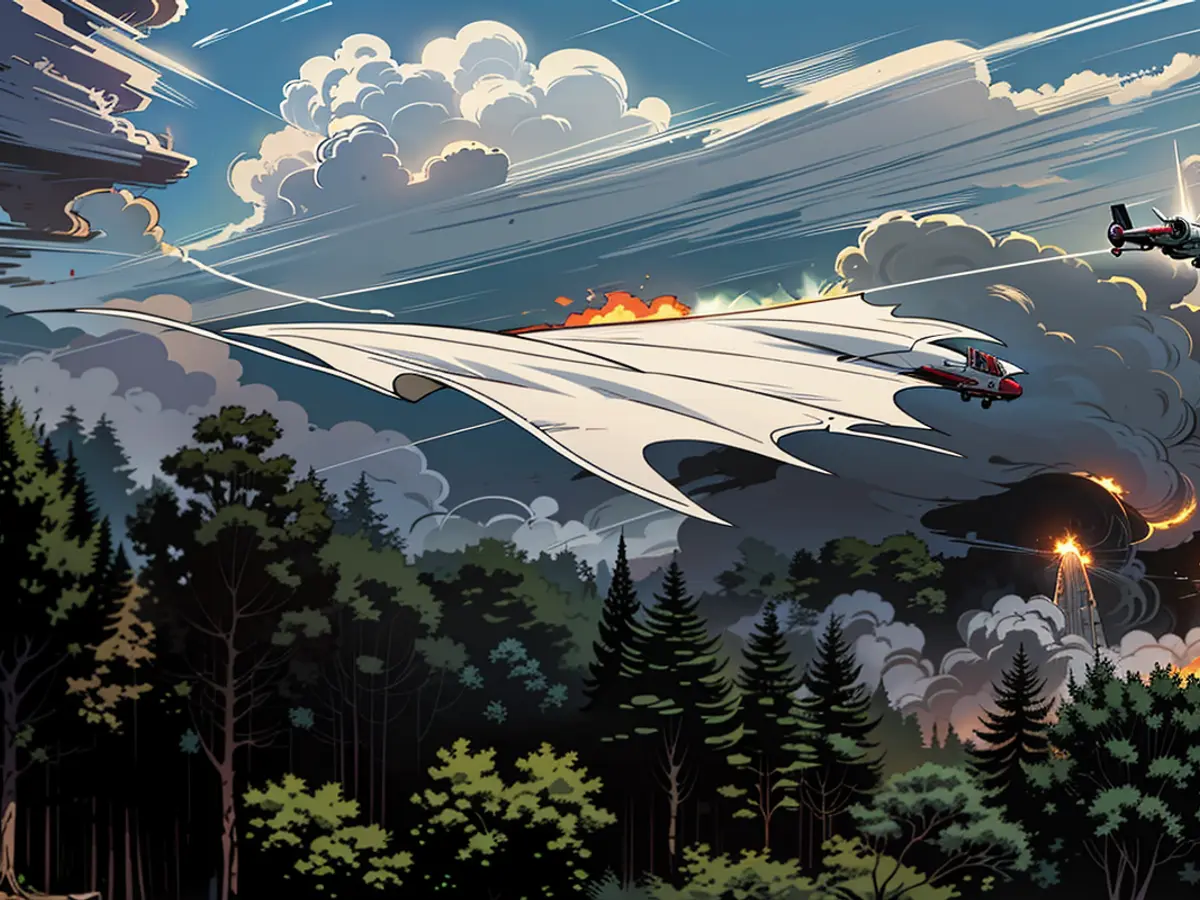Israel prepares for a major conflict in Lebanon
Israel has expressed its desire for a ceasefire in both its northern regions and Lebanon's southern region. This could occur either preceding or following a significant conflict against Hezbollah, as Israeli ambassador Danny Danon communicated to the UN Security Council. The United States and France have suggested a 21-day ceasefire as a possible solution.
Israel has hinted at the possibility of a confrontation with the Shia organization Hezbollah located in Lebanon. At an emergency UN Security Council meeting in New York, Danon stated, "I'm hoping for a ceasefire, aiming for the return of Israelis to their homes in the north, and the return of southern Lebanese to their homes in southern Lebanon. It'll happen either before a war or after a war. I hope it'll be before." He also mentioned that Prime Minister Benjamin Netanyahu is expected to travel to the United States on Thursday.
The United States and France put forward the suggestion of a 21-day truce. Shortly after a meeting between French President Emmanuel Macron and U.S. President Joe Biden at the UN Security Council's emergency meeting in New York, France introduced the proposal. According to France's newly appointed Foreign Minister Jean-Noël Barrot, the ceasefire is intended to "promote negotiations." He emphasized, "It's imperative for all parties to firmly commit to a de-escalation path."
Iran Warns of Looming "Disaster"
Iranian Foreign Minister Abbas Araghchi expressed his country's support for Lebanon. In the midst of the UN General Debate in New York, attended by over a hundred heads of state and government from across the globe, Araghchi voiced his concern, stating, "The region is on the brink of a disastrous outcome. If it's not contained, the world could face catastrophic consequences." Araghchi pledged Iran's unwavering support to the Lebanese people.
The escalating crisis in Lebanon has been the main focus of the UN General Debate in New York. For nearly a year, the north of Israel has been frequently targeted by the Iran-backed Hezbollah militia in Lebanon. In response, the Israeli military retaliates with counterattacks on Hezbollah targets within Lebanon. According to Lebanon's Health Ministry, 72 people have been killed and approximately 400 others injured in Israeli attacks in the south and east of Lebanon, as well as in the region surrounding Beirut's capital.
The last conflict between Israel and Hezbollah took place in July 2006. Within 34 days, nearly 1400 people were killed, with 1200 of those fatalities occurring on the Lebanese side, primarily civilians. The hostilities concluded with UN Security Council Resolution 1701, which imposed demands for Hezbollah's disarmament and withdrawal beyond the Litani River, which represents the northern border of the agreed demilitarized zone.
The Israeli ambassador to the UN, Danny Danon, suggested that a ceasefire could occur before or after a potential 'War with Israel' against Hezbollah. Iran's Foreign Minister Abbas Araghchi warned of a "disastrous outcome" if the escalating crisis between Israel and Hezbollah in Lebanon is not contained.








